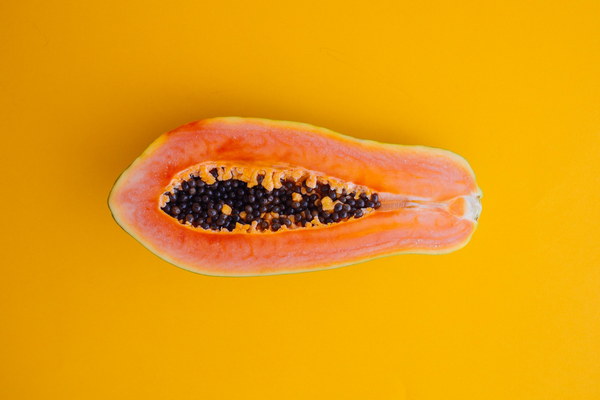Revitalize Your Lungs with These Traditional Chinese Medicines A Guide to Lung Care with Herbs
Introduction:
The respiratory system is a vital part of our body, playing a crucial role in gas exchange and overall health. With the increasing pollution levels and the rapid pace of modern life, it is essential to take steps to protect our lungs. Traditional Chinese Medicine (TCM) offers a wealth of natural remedies to nourish and strengthen the lungs. In this article, we will explore the best Chinese herbs for lung care and how they can help you breathe easier.
1. Ginseng (Panax ginseng):
Ginseng is one of the most well-known herbs in TCM, renowned for its immune-boosting properties. It is believed to improve lung function, enhance energy levels, and reduce fatigue. Ginseng can be taken in various forms, including capsules, teas, or powders. To use ginseng for lung care, you can prepare a tea by adding 2-3 slices of ginseng root to a cup of hot water and steeping it for 10-15 minutes.
2. Astragalus (Astragalus membranaceus):
Astragalus is another immune-boosting herb that is often used in TCM to support lung health. It is believed to improve respiratory function, reduce inflammation, and enhance the body's ability to fight off infections. Astragalus can be taken as a tea or in the form of capsules. To prepare a lung-boosting tea, add 1 teaspoon of dried astragalus root to a cup of hot water and steep for 15-20 minutes.
3. Licorice root (Glycyrrhiza uralensis):

Licorice root is a well-known herb in TCM, known for its soothing and anti-inflammatory properties. It is often used to treat respiratory conditions such as coughs, colds, and bronchitis. Licorice root can be taken as a tea or in the form of capsules. To make a lung-soothing tea, add 1 teaspoon of licorice root powder to a cup of hot water and steep for 10-15 minutes.
4. Elderberry (Sambucus nigra):
Elderberry is a powerful immune-boosting herb that is known for its ability to combat colds and flu. It is believed to reduce inflammation and improve lung function. Elderberry can be taken as a tea, syrup, or in the form of capsules. To prepare an elderberry lung tea, add 1 tablespoon of dried elderberries to a cup of hot water and steep for 15-20 minutes.
5. Peppermint (Mentha × piperita):
Peppermint is a refreshing herb that is known for its ability to soothe the respiratory tract. It is often used to treat coughs, colds, and bronchitis. Peppermint can be taken as a tea, essential oil, or in the form of capsules. To make a lung-relieving peppermint tea, add 1 teaspoon of dried peppermint leaves to a cup of hot water and steep for 10-15 minutes.
6. Mullein (Verbascum thapsus):
Mullein is a lung-soothing herb that is believed to have expectorant properties, making it useful for treating coughs and respiratory infections. It is also known for its anti-inflammatory effects. Mullein can be taken as a tea or in the form of capsules. To prepare a mullein lung tea, add 1 teaspoon of dried mullein flowers to a cup of hot water and steep for 15-20 minutes.
Conclusion:
Traditional Chinese Medicine offers a wide array of natural remedies to help you maintain healthy lungs. By incorporating these herbs into your daily routine, you can support your respiratory system and enjoy better overall health. However, it is essential to consult with a healthcare professional before starting any new herbal treatment, as some herbs may interact with other medications or have contraindications for certain individuals. With proper care and the right herbs, you can breathe easier and improve your quality of life.









